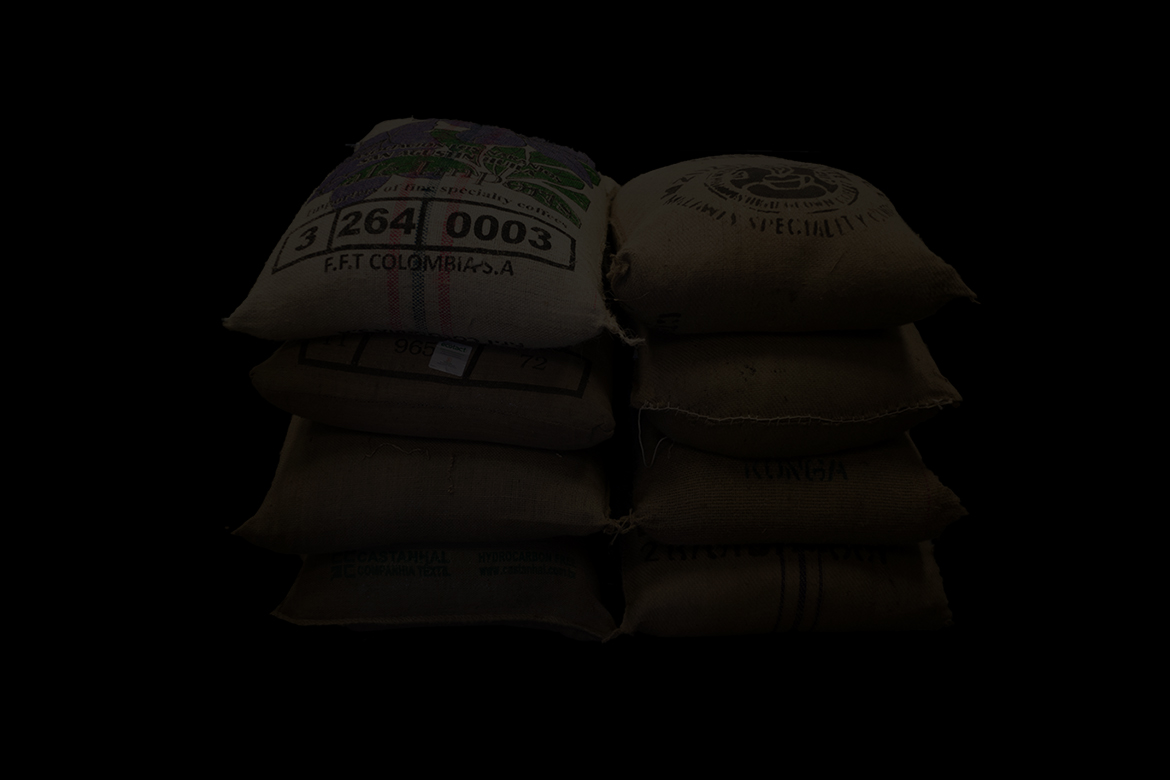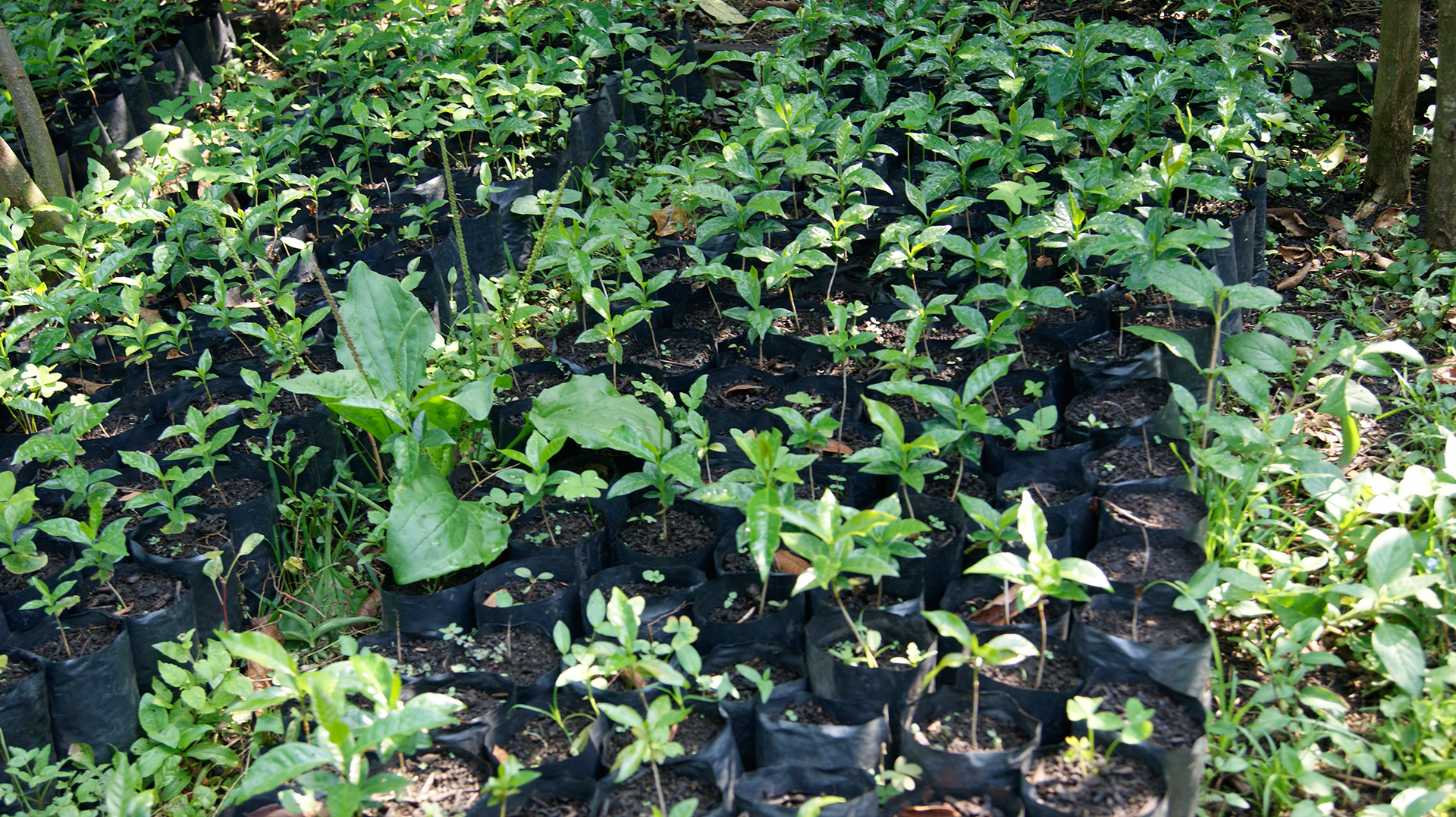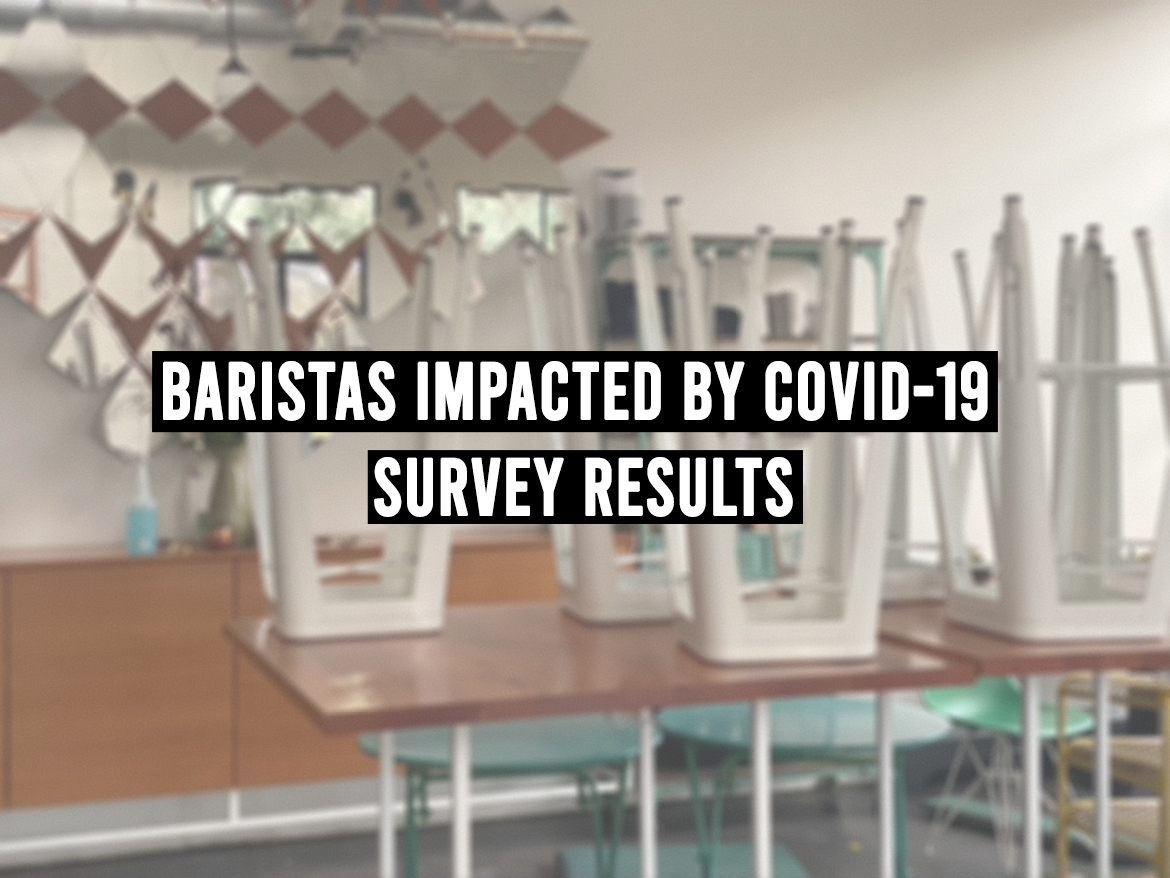
No part of the coffee chain has gone untouched by COVID-19. While early reporting—and yes, we are still early in all this—has focused on the dramatic impact on cafes, roasters and baristas, the green coffee supply side is an equally important part of the emerging picture. Coffee is a global agricultural product that uses freight shipping to cross many border national borders, feeding back into the lives of millions of coffee growers and producers. It’s both a side of the industry that moves a little slower than the pace of a cafe or a roaster—decisions and world events happening now will result in impacts felt in the months and years to come.
In the coming days we’ll be tackling COVID-19’s impact on the coffee supply chain in a series of features. Today we’re speaking with green coffee importers; we’re also collecting interviews and perspectives from coffee producers, large and small, for more features in this series.
How is the global pandemic challenging the importer side of the coffee market? It’s a question with little coverage so far, though one recent report by Yahoo Finance found that some importers were beginning to stockpile green coffee in fear of delays—or outright shutdowns—somewhere along the supply chain. But Noah Namowicz, Partner and Senior Vice President of Sales at Cafe Imports tell Sprudge, the hoarding the article is referring to has taken place more on the commercial side and has no impact on their own buying practices now or in the foreseeable future. These diametrically opposed responses to the pandemic—one of panic and stockpiling, the other of staying the course while maintaining stable relationships—sheds light on the fact that the coffee supply chain is not a monolith.
Even within the specialty sector, responses from importers to the potential disturbances caused by COVID-19 as well as the sort of impact they are seeing in producing countries vary from company to company, region to region, even farmer to farmer.
Sprudge reached out to a number of specialty coffee importers and import experts for this feature to better understand how the global pandemic is affecting their section of the supply chain. We’re printing their answers here in full to allow these experts to give their firsthand account of how COVID-19 is shaping coffee trading, and what the supply side picture might look like in the months to come.
Some answers have been lightly edited and condensed for clarity.
Kim Ionescu, Chief Sustainability Officer and Knowledge Development Officer at Specialty Coffee Association:
As best I can tell, the answer is that both [slowdowns and panic buying] are happening. On the slowdown side, shipments have been delayed by a lack of available containers, ports have reduced their staff to comply with social distancing protocols (even if only after dock workers threaten to strike, as occurred in Santos, Brazil), and overland transportation has been slowed in both producing and consuming regions. In response to those delays, and the prediction of ongoing, worsening delays, especially as COVID-19 intensifies in coffee-producing countries, companies are stockpiling, and the commodity futures market price has been high compared to other agricultural commodities (not to mention the levels we saw at this time last year).
While I would typically say that higher C-market prices are better than lower ones, I’m not hearing any good news from specialty coffee producer representatives—on top of anxiety about the health and safety of vulnerable coffee farmers and laborers in producing regions, producer organizations are reporting having contracts frozen by buyers whose businesses are contracting. We also know from a survey on the impacts of COVID-19 that SCA did two weeks ago that the majority of producers who responded see the virus as threatening their business, with many identifying it as an “existential threat.”
Max Nicholas-Fulmer, CEO at Royal Coffee
We’ve seen a combination of forces at work: some fairly panicked buying of spot and nearby positions, followed fairly quickly by a reevaluation of what is booked forward and how a “typical” buying year will need to be reworked. Nearby supply disruption, at least right now, isn’t nearly as big a concern as the health of farmers and workers in producing countries, how reduced access to financing will impact production and quality in the long term, and the overall health of economies on the demand side keeping all our customers in business. For better or worse, the winners in all of this will likely be the well capitalized multinationals, not the local independents. This could spark a new round of consolidation throughout the supply chain before all is said and done. Looking in our own backyard of the Bay Area, there certainly is hope. It’s up to consumers throughout the world to keep supporting their local cafes and roasters. We all have a say in how we want this to shake out. Now is the time to vote with your dollar and support small businesses.
Vera Espíndola Rafael, Development Economist, Director of ‘Manos el Grano’ at Azahar Coffee and SCA Board Member
Here in Mexico, we are at the end of the harvest. Transportation still has no restrictions so we hope this helps in getting the coffee to the mills and ports, which are operating normally. I was in Oaxaca two or three weeks ago and you could already hear farmers offering their coffee to a lower price because they are afraid they won’t be able to sell anything in a couple of weeks.
Aleco Chigounis, Co-Founder and President at Red Fox Coffee Merchants
The impact of all this is pretty dramatic. We’re down a significant volume in terms of the coffee we release and deliver every day to our clients, perhaps as much as 50%. We haven’t seen much panic buying yet—a few of our roaster clients are pretty strong in grocery, and that’s helping us get through this. We’ve kept our entire team so far and that’s the number one thing right now from perspective.
Our biggest concerns are with AR [Accounts Receivable], and with our clients’ ability to pay. That’s becoming an issue, but we’re working through it and our communication with them is strong. I think there’s a misconception from some smaller roasters that as importers, we’re in some place of power or leverage. I see things on social media where people are incredibly disappointed with importers—but we’re all in the same boat. We have expenses and payroll to meet and we’re struggling as much as anyone else. Folks that come to get out of contracts, that’s an immediate loss. We’re trying to do our best for clients and help them through it all, and so far I think we have. We’ll see how long this all lasts.
But that’s the biggest disconnect for me: the idea that importers have the ability to do more for roasters in this situation, when we really don’t.
We’re about to put out a comprehensive update on our supply chains [in the coming days], from each of the origins we work in, but the quick snippet is yes, we are seeing slowdowns. Restrictions are finally coming into place in countries like Mexico, which was slow to adopt social distancing, and in Ethiopia. Dry mills are still operating, but at a slower clip. In Colombia there’s actually a curfew that’s been enacted in the late afternoon. During prime time a coffee mill should be operating deep into the night, but now they’re shutting down at 4 or 5 pm. Folks are reporting they’re working at half capacity, and that has an immediate impact.
Unless your vehicle is deemed essential, in many places you’re not allowed into the countryside. Local communities in places like Peru and Mexico are doing this, taking matters into their own hands, and there’s slowdowns because of it all along the way. We’ve heard in Colombia that out of five attempts to contract a truck for a container, only one of them works. It’s difficult to get a coffee from a city like Popayán out to port; that’s a couple days drive, and right now there’s nowhere to eat or sleep for the truck drivers. Basic things like this are really slowing things down.
Ports are still open. That’s not an issue and hopefully that stays the case. One of our concerns is a shortage of containers down the line, which would have a dramatic effect. From the producer standpoint, we’ve talked to virtually everyone we work with in Colombia, Peru, and Mexico so far, as well as some in Ethiopia, which are our major origins at Red Fox, and we’re hearing they’re all doing well. Many of these communities are already kind of isolated as is, living on farms with their immediate family units. Everyone seems aware of the situation. I spoke to some of our friends who live up on the mountainside in Nariño, and they’re going to be starting harvest in the next month or so, the next six weeks. Their big concern is setting up receiving station for parchment, instead of having their coffee go down to the bigger trucking hub along Route 1. There have been instances of COVID down there, so they’re trying to figure out how to keep their members from having to go there.
We almost exclusively work with smallholder farms, and many of them are able to do preparation for harvest work among their immediate family units, but for those medium to larger farms, they are probably going to have issue with finding labor. If people aren’t looking to come in and work from outside areas right now, it makes hiring for labor really difficult. Will that mean there will be an eventual shortage in the market? It’s way too early to tell, but this is the first prognosis we’re getting.
Andreas Idl, CEO and Co-Founder at Cropster
We see and hear signs of disruption across the supply chain. There is a recognition among people we consider first movers, that post-COVID there will be less conferences and travel overall. That will impact the way we all collaborate. Overall, we are getting more and more questions about ways to work remotely well past COVID. More electronic communications and less paperwork are re-occurring themes when people focus where they are heading. But frankly, right now most people I talk to focus on their most important thing: their people and partners.
Stephen Hurst, Founder and Managing Director at Mercanta
By and large the UK, Continental Europe, and North America are virtually at a full stop. Outgoing orders have slowed to a trickle and coffee is backed up in the warehouse. Supply side disruptions have not been seen yet, but I would expect them to occur. However, my belief is that the relatively small amount of containers and coffees related to genuine specialty shipments will not make a supply side disruption a major problem—but some delays and disruptions here and there.
Coffee is an important product financially and socially for many producing countries and it will find its way out. I do not doubt some shipping and harvest disruptions will occur but the impact on specialty will be less than the industrial volume driven commodity coffee business. Moving coffee around to clients in the UK and on the Continent suffers some minor delays and disruptions but at the moment the warehouses and ports and transport companies are working “normally”, though customs and cross border traffic is prone to hold up, sometimes significant.
The surge in the commodity coffee price and in demand for nearby deliveries of raw beans is “limited’’ to the large roaster players exposed to supermarket retail and in home business. A great many of our clients are suppliers of cafes, restaurants, hotels, pubs, bars and the horeca sector (much of which is closed) and any uptick in on line sales (most welcomed by the craft and artisan roaster customers) is more than lost on the wholesale side of the business. Anecdotally we see fall off in roasting volumes amongst clients from 50-70%.
Mercanta’s Singapore office is performing reasonably well, orders in that region have held up and/or orders are recovering as Asia’s place in the coronavirus cycle is 2-3 months ahead of Europe and the USA.
Many currencies have collapsed versus the US$ (Brazil Real and Colombian Peso to name but two) but the real story is currencies like the Norwegian Crown, Swedish Crown, GBP Sterling, Euro, Hungary, Romania, South Africa, etc. Specialty raw coffees in these markets is rising in price, sometimes quite dramatically, at the very moment the last thing that is needed is a price rise with all the rest of the crisis unfolding
I personally believe a major side effect of this crisis will be a re-evaluation of the so called Direct Trade business. These roasters are now receiving much more coffee than they need, with no money to pay for it, at prices (because of collapsing currencies versus the US$) 10-15% higher than bargained for. The knock on effect of this (non-payment/default) will ripple back down the supply chain to the producer. We have already heard of importers and roasters simply cancelling purchase contracts, which we have not done in one single case. Delayed and deferred yes, but cancelled a confirmed order, Mercanta has not.
Cafe Imports has been regularly compiling information from origin as part of their newsletter. We are reprinting excerpts below. The full report as well as a country-by-country breakdown of the impact thus far can be found here.
“The primary countries to which we import green coffee—the U.S., U.K., Australia, and Germany—have all placed some restrictions on operations at the ports, while continuing to receive international cargo shipments. Limited personnel and necessary precautions regarding handling of coffee will naturally cause some delays, but as of right now we’re still able to receive coffee shipped from countries of origin.”
Zac Cadwalader is the managing editor at Sprudge Media Network and a staff writer based in Dallas. Read more Zac Cadwalader on Sprudge.




















